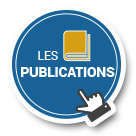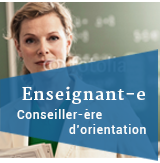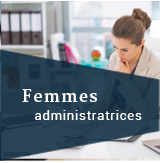 Actualités
Actualités 
FROM MS. IRENE NATIVIDAD SUMMIT PRESIDENT, GLOBAL SUMMIT OF WOMEN
The Global Summit of Women was pleased to have Femmes Ingenieure as an International Partner for the recently-completed 2017 Summit in Tokyo, Japan on May 11-13. We appreciated your efforts to disseminate information about the 2017 Summit and to encourage women in your networks to attend the event. The work you do is vital for the growth of women enterprises in your country and globally. The combined efforts of all of this year’s Members and Partners led to a very successful Summit – the largest ever with 1,300 participants from 62 economies gathering in Tokyo, along with an additional 220 students and 100 corporate guests.
In addition to active networking, robust discussions and information-sharing on effective strategies to advance women in the global economy, the 2017 Summit attendees had the opportunity to salute Japan’s Prime Minister Shinzo Abe for his quest for more women’s economic participation to boost Japan’s competitiveness and to former President of Malawi Joyce Banda for her lifelong pursuit to improve women’s economic and educational status throughout Africa.
OVER 1,600 ATTENDEES JOIN RECORD-SETTING 2017 GLOBAL SUMMIT OF WOMEN IN TOKYO
Over the past 27 years, the Global Summit of Women has become synonymous with active networking, robust discussion, inspiring presentations, and a focus on solutions among a truly global group of women leaders in business and government from all parts of the world. The 2017 Global Summit of Women was no different, except that more women and a growing number of men took part than in any previous Summit. In total, over 1,600 attendees gathered in Tokyo, Japan from May 11-13 for the 2017 Summit, graciously welcomed by the host country and determined to share and learn best practices for increasing women’s economic empowerment globally.
The 2017 Summit took place under the theme of “Beyond ‘Womenomics’ – Accelerating Access,” which reflected what Japan’s Prime Minister Shinzo Abe has encouraged his country to do to spur economic growth and competitiveness. “The main reason we held the Summit in Tokyo,” explained Summit President Irene Natividad, “was to provide global support to the efforts by government and business to speed up women’s economic achievement in Japan.”
With that mission, entrepreneurs, senior executives, government ministers and parliamentarians came from 62 countries to connect with their peers in Japan. The largest delegation participating in the 2017 Summit came from China with 96 high-level entrepreneurs. The second largest delegation was from Kazakhstan with 85 women business owners participating. Next was Vietnam with 81 led by Vice President Dang Thi Ngoc Thinh and four government ministers. Other large delegations included South Korea with 66, the US with 57, 46 from the Philippines, and 44 from Spain.
“We were pleased to hold the Summit for the first time in Japan and to bring women from four continents to the city of Tokyo, which recently elected its first woman Governor,” said Summit President Natividad. “The diverse group of women leaders who joined the Summit – whether from Azerbaijan, Cameroon, Honduras, Tunisia and everywhere in between – created a dynamic spirit they will bring back to their countries, energized to continue the work of improving the economic lives of women in their countries, companies, and communities.”
The Summit’s Opening Ceremony was joined by Prime Minister Abe, Vice President of the Philippines Leni Robredo, Vice President of Vietnam Dang Thi Ngoc Thinh, and Japan’s Minister of Foreign Affairs Fumio Kishida. During his speech, Prime Minister Abe explained that Abenomics is Womenomics. “The aim of the Abe Administration – a society in which all women can shine – is one in which all kinds of people can overcome a variety of limitations, and can succeed while being who they are,” he said.
Following the Opening Ceremony, delegates were treated to Japan’s Welcome Dinner at Akasaka Palace, Tokyo’s State Guest House, secured and organized by the Japan Host Committee led by Noriko Nakamura, CEO of Poppins. An array of Japanese cultural entertainment and cuisine awaited the delegates at this warm reception, which provided a special evening for delegates and set a festive tone for the three-day event.
For more photos from the 2017 Summit, visit www.globewomen.org/globalsummit.
In her remarks, Vice President Robredo stressed the importance of going beyond Womenomics to increasing access for women throughout the world. For a video clip from Vice President Robredo’s speech, click here or on the image below.
CWDI REPORT SHOWS ASIA-PACIFIC REGION LAGGING BEHIND IN PLACING WOMEN ON CORPORATE BOARDS
In the boardrooms of over 1,500 companies in 20 economies in the Asia-Pacific region, women hold only 12.4% of board seats, according to Corporate Women Directors International (CWDI), the research arm of the Global Summit of Women, which released its report at the 2017 Summit in Tokyo.
With the overwhelming majority of board seats in the region held by men (87.6%), Asia-Pacific trails Northern Europe (35.6%), Western Europe (23.6%), North America (20.9%), Eastern Europe (15.5%), and Africa (14.4%).
“While there is global momentum -- largely driven by Europe – to increase the presence of women board directors globally,” says CWDI Chair and Global Summit of Women President Irene Natividad, “Asia Pacific companies are being left behind in moving women to corporate leadership roles. The irony is that this region has a wealth of highly educated women, many with strong business experience, who were equal contributors to the region’s explosive economic growth.”
Among the economies in the region, Australia is the clear leader in placing women on boards, with 27.2% of boards seats filled by women among the 100 largest companies in the country. Following Australia is New Zealand, which has 19.3% women’s representation on its top companies’ boards. Other high performers are Malaysia with 16.6%, Cambodia with 16.5% and Vietnam with 16.4%.
For a Financial Times news article on the CWDI Report, click here.
CWDI OPENS TOKYO STOCK EXCHANGE
To mark the Global Summit of Women in Tokyo, CWDI brought together 40 women board directors and senior executives to ring the opening bell at the Tokyo Stock Exchange on May 10, 2017. This historic Market Open also saluted the contributions women have made to Japan’s economy.
CWDI Chair Natividad presented the rationale for the Market Open. “It’s important that women are seen as part of business traditions such as Market Opens in Stock Exchanges,” she said. “Bringing women from throughout the world to this ceremony illustrates the extent of women’s global business leadership and Japan’s important role in the global economy.”
Tokyo's Market Open marked the 17th Market Open organized by CWDI. Other openings took place with women business leaders beginning in 2006 at NASDAQ in New York, the Toronto Stock Exchange, the Johannesburg Stock Exchange, the Istanbul Stock Exchange, the Madrid Stock Exchange, the Barcelona Stock Exchange, the Warsaw Stock Exchange, the Sao Paolo Stock Exchange, the Hong Kong Stock Exchange, the Zurich Stock Exchange, the Bursa Malaysia in Kuala Lumpur, the Deutsche Boerse in Frankfurt, Euronext or the Bourse in Paris, the Australian Securities Exchange, the Philippine Stock Exchange, and the Mexican Stock Exchange.
PRIME MINISTER ABE, PRESIDENT BANDA, AND GOVERNOR KOIKE AWARDED AT 2017 SUMMIT
The Global Summit of Women was pleased to present its Global Women’s Leadership Award to two recipients this year at the Summit in Tokyo. Receiving the Award at the Summit’s Opening Ceremony was Prime Minister of Japan Shinzo Abe. Prime Minister Abe, the second man to receive the Award, following UN Secretary-General Ban-Ki Moon who received the Award in 2011 in Istanbul, was saluted for his leadership in championing economic opportunities for women in Japan and for the positive global impact of a Head of State leading the charge for women’s economic empowerment. For the video showing why Prime Minister Abe received the Award, click here
A second recipient of the Summit’s Global Women’s Leadership Award was the former President of Malawi H.E. Joyce Banda. President Banda was awarded for her support for women’s and children’s rights globally and for her efforts to improve education and economic opportunities for women and girls in Malawi and throughout Africa. For more on why President Banda received the Award, click here .
The Japan Host Committee Chair Noriko Nakamura also presented the Japan Women’s Leadership Award to the Governor of Tokyo Yuriko Koike. Governor Koike became the first woman to hold this position when she was elected in August 2016. Throughout her political career which began in 1992 as a Member of Parliament, she has always emphasized the need for more women to be in policy-making positions. The video highlighting her achievements can be found here.
CEOs – MEN AND WOMEN – DISCUSS ACCELERATING ACCESS FOR WOMEN INTO CORPORATE LEADERSHIP POSTS
Among the 1,600 attendees of the 2017 Global Summit of Women were dozens of women CEOs of enterprises large and small from different parts of the world. In addition, several male CEOs of top companies also took part and contributed to the discussions. Four of the male CEOs were featured in the session “Leading Diversity from the Top,” where they addressed how they perceived women’s skills and talents and what motivates them to push for diversity in senior management.
Moderated by Angela Mackay, Managing Director of Financial Times Asia Pacific, CEOs joining the panel were Rune Thoresen, President, Subsea Projects Asia Pacific for TechnipFMC; Masahiko Uotani, President and Group CEO of Shiseido; Christopher Townsend, President of MetLife Asia; and Sunil Nayak, President, Corporate Services Asia, for Sodexo.
During the discussion, Mr. Uotani shared that for Shiseido to grow and to become respected globally, it was necessary to change the company culture and to ensure women are present in leadership posts. Under Mr. Uotani’s leadership, Shiseido has claimed a top position among Japanese companies with four women in director roles on a board of 12.
In addition to having women in top positions, Mr. Nayak of Sodexo stressed the value of diversity throughout the entire company. “You can't have an engaged organization unless everyone – men and women – have an opportunity to succeed,” he said. “If your employees are respected, they will do better and grow with the company.”
It was accepted by all panelists that leadership was needed at the top for change to happen. “It is incumbent upon CEOs to set the culture and values of the company,” Mr. Townsend of MetLife said. “You need to respond to good behavior by celebrating success and to bad behavior by calling it out.” Mr. Thoresen of oil and gas company TechnipFMC agreed. “Gender equality at all levels is possible,” he said. “You just have to want to make it happen.”
The Summit also featured a panel of women CEOs discussing the topic “Accelerating Women’s Corporate Leadership.” Moderated by Business Editor of the Financial Times Sarah Gordon, the panel consisted of Doris Magsaysay-Ho, President and CEO of Magsaysay Maritime Corp.; Haruno Yoshida, President of BT Japan; Adaire Fox-Martin, Co-President of Global Customer Operations for SAP; and Elisabeth Staudinger, President, Asia-Pacific for Siemens Healthineers.
The panelists discussed the challenges of being a woman CEO and provided advice for how more women can move into the C-suite. Ms. Fox-Martin of SAP pointed out three elements she believes are necessary for women’s advancement in the corporate world. First, the company needs to have a sincere focus on diversity and inclusion. Second, sponsors within the company can help to support individuals into the next role; and third, mentors outside of the company can help to bring new processes into the company.
Aligned with Ms. Fox-Martin’s points, Ms. Staudinger of Siemens credited her first boss, whom she called a sponsor, for helping her see that opportunities for personal growth were possible within the company. When the boss asked her to move to China to manage a business unit, she accepted without hesitation.
In order to help women accelerate their career progress within her company, Ms. Magsaysay-Ho said she created a leadership program for both women and men to manage their home. She believed that all her employees needed to learn how to better manage their lives outside of work, so requires managers in her company to set a family mission to ensure everyone in the household plays a role.
Lastly, Ms. Yoshida encouraged women to take advantage of technology and innovation to help them become more productive. “We cannot change that there are only 24 hours in a day,” she said, “so we must use whatever we can to save time and be more efficient.”
The Male CEO Forum and Woman CEO Forum were just two of the sessions providing solutions to the 1,600 attendees of the 2017 Global Summit of Women. To see more from the Summit, please visit www.globewomen.org/globalsummit.











